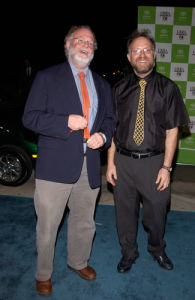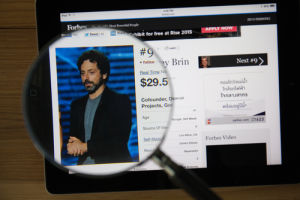Once upon a time these five companies were minnows. Now, they are giant killers, roaming the global markets.
Starting small and growing is difficult. Just surviving the first few years can prove tricky, never mind disrupting a whole sector. Nevertheless, it can and has been done; here are five underdog brands that became giant killers.
Netflix
Three years into its existence, Netflix was an unprofitable fringe movie rental service, sending its 300,000 subscribers DVDs through the post. When it approached Blockbuster that year, in the spring of 2000, and gave the video rental chain behemoth the opportunity to buy it out, Blockbuster laughed the company’s directors out of the room. Move forward to 2016, and Netflix has over 75 million subscribers worldwide with its innovative online model, while Blockbuster is long out of business. Not only has Netflix eclipsed the one time market leader, it had also raced past other media companies like HBO and YouTube in terms of subscriptions and web traffic respectively.
DOWNLOAD this brilliant business plan template and ignite your dream.
Ben & Jerry’s
Ben and Jerry’s battle with Haagen-Dazs is one of the classic David V Goliath stories in business. Starting out selling homemade ice cream from a petrol station, Ben & Jerry’s grew to the point where it was beginning to sell its product in supermarkets. Concerned that the rise of Ben & Jerry’s could hurt the sales of Haagen-Dazs, parent company Pillsbury gave distributors an ultimatum; drop Ben & Jerry’s or lose Haagen-Dazs. Being too small to sue the conglomerate, Ben & Jerry’s launched the “What’s the Doughboy afraid of?” campaign, taking out ads on buses, setting up a hotline and sending out t-shirts and bumper stickers to supporters. Suitably embarrassed, Pillsbury backed down and Ben & Jerry’s was able to grow into the thriving brand we know today. It was eventually bought by Unilver for a handsome sum of ‘dough’.
Ryanair
When accountant Michael O’Leary was first approached by Ryanair founder Tony Ryan to take a look at his floundering airline, O’Leary’s initial advice was to close it down. The company was losing millions and seemed ill-equipped to compete with the long-established duopoly of British Airways and Aer Lingus. However, after studying the rise of Southwest – the American ‘peanuts’ airline – O’Leary realised that by adopting a no-frills approach to air travel, Ryanair could beat the big airlines on price and capture a new kind of passenger. The strategy worked, and today Ryanair is a multi-billion euro company and is only getting bigger.
Dyson
When James Dyson (above) first showed his first vacuum cleaner to the leading vacuum manufacturers at the time, no one was interested. Convinced his invention had legs, he re-mortgaged his house and decided to manufacture the Dyson vacuum cleaner himself. From humble beginnings with mail-order catalogues and tiny stores, Dyson overcame his distribution problems. In 1995, he met the then British foreign secretary, who pulled a few strings and got Dyson into Comet, then a leading retail chain in the UK. After just a year, Dyson was the best-selling vacuum cleaner in Britain.
Initially run out of a garage in suburban California, Google was started by two students in 1998 as a side project from their research commitments. As the search engine grew in popularity, the founders felt like it was interfering with their college work and so approached the likes of Yahoo, Alta Vista and Excite for a buy-out. The companies all said no. Excite, then one of the biggest tech companies of the 90s, was offered Google for $1 million, but the company passed. When Google then lowered its price to $750k, Excite still wasn’t interested. Google of course went on to become the multi-billion dollar, globe trotting juggernaut we all know today, while Excite went into decline and was itself bought out by Ask Jeeves.
Article by Peter Flanagan
Images: Michael O’Leary, Northfoto / Shutterstock.com; Sergey Brin, GongTo / Shutterstock.com; Ben & Jerry, Featureflash Photo Agency / Shutterstock.com, Dyson, Netflix. ⊕







